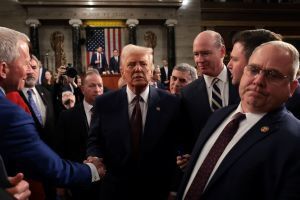The power and importance of personal conviction for leaders

In the book Margaret Thatcher: Power and Personality, author Jonathan Aitken describes Thatcher in the early days of her premiership as “the personification of Edmund Burke’s dictum ‘one man with convictions is a majority.’”[1] While Thatcher came to power in 1979 amidst a political culture driven by consensus, she would transform a country by leading from conviction.[2]
Burke is right, and history bears this out: One man with conviction is a majority. Martin Luther King Jr.’s personal conviction of non-violent protest led to monumental civil rights legislation. George Washington’s personal conviction of democratically elected leaders serving limited terms inaugurated the most stable series of peaceful transitions of power in the history of the world. Winston Churchill’s personal conviction that England must not negotiate with the Nazis emboldened the Allies and undoubtedly altered the course of modern history.
Personal conviction is a powerful thing.
But how does personal conviction translate into leadership? Consider the following hypothetical situation: A group of young men is at a park on a Saturday. One young woman walks in the distance, and two of the young men start to make lewd comments towards the young woman. One young man, however, has been raised with strong values to protect women. He is personally convicted that such lewd comments are not only immoral, but unmanly. If his convictions remain private, they will have no effect on what is unfolding in the park that evening. However, because there is courage behind his conviction, he speaks up to his friends in the park saying, “Guys, we are not going to talk to her that way.” As a result, the group of young men makes no further comments towards the young woman passing by in the park.
In the above scenario, as with Margaret Thatcher, Dr. King, George Washington, and Winston Churchill, the “I” of personal conviction becomes the “we” of convictional leadership. In such cases, a leader’s personal convictions are so strong and relevant to the public good that she is compelled to project those convictions onto the people and organizations that she leads. She does not poll or survey to chart the course of her policy, but she sets her policy by the compass of her conviction.
In order for Burke’s dictum to be true, personal conviction must be accompanied by courage. C.S. Lewis, who had an impact on Margaret Thatcher during her college years, famously said in The Screwtape Letters that, “courage is not simply one of the virtues, but the form of very virtue at the testing point, which means at the point of highest reality.” Courage activates personal conviction and enables a leader to insist that others act on values, which they may not immediately share, in the hopes that a culture of values will lead to the internalization of those values.
In the case of Margaret Thatcher, her personal convictions regarding the economic theories of Friedrich von Hayek and Milton Friedman led to flourishing in the UK through economic liberalism. Martin Luther King Jr.’s personal conviction of peaceful protest and non-violent resistance led to flourishing in the US through legal desegregation. It takes time for ‘one man with conviction’ to become a majority, but with courage and persistence, the power of personal conviction is realized.
[1] Jonathan Aitken, Margaret Thatcher: Power and Personality (New York: Bloomsbury, 2013), 250.
[2] John Lanchester, “Margeret Thatcher’s Revolution” in The New Yorker, July 29, 2013; accessed online at https://www.newyorker.com/magazine/2013/08/05/1979-and-all-that .
Adam Groza (Ph.D.) is a Vice President and Associate Professor of Philosophy of Religion at Gateway Seminary. His new book is Faith Wins: Overcoming a Crisis of Belief (New Hope Publishers, 2020).




























